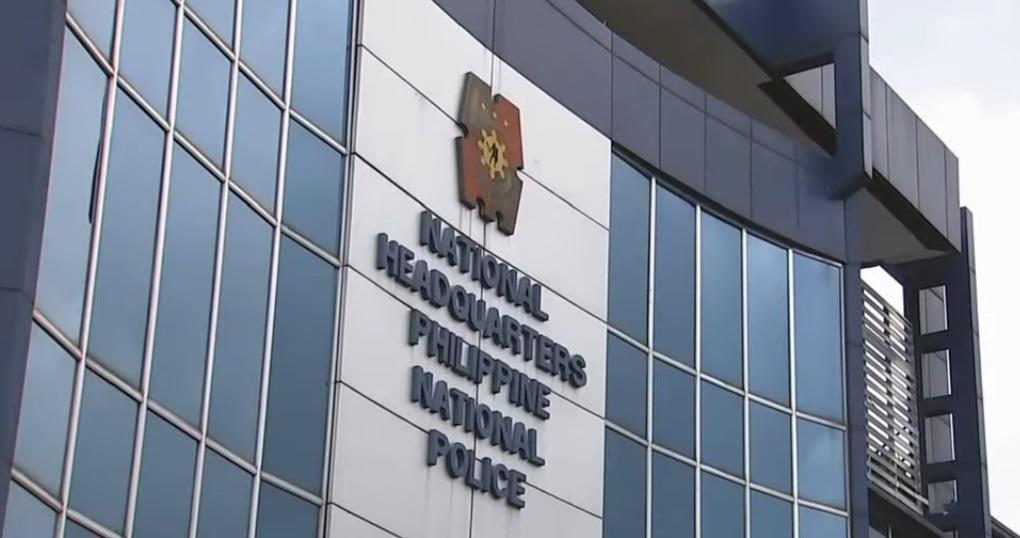Marcos vetoes proposed measure seeking PNP organizational reforms

President Ferdinand ''Bongbong'' Marcos Jr. has vetoed the proposed measure seeking for organizational reforms in the Philippine National Police (PNP).
In his veto message, Marcos said he could not approve Senate Bill No. 2449 / House Bill No. 8327 or An Act Providing For Organizational Reforms In The Philippine National Police, Amending For The Purpose Republic Act No. 6975, Otherwise Known As The Department Of The Interior And Local Government Act of 1990, As Amended, And Republic Act No. 8551, Otherwise Known As The Philippine National Police Reform And Reorganizational Act of 1998 ''because the provisions run counter to administrative policy and efficiency.''
The President said the bill should be supportive of the programs and policy aspirations of the present and future administrations, among which is the proposed National Government Rightsizing Program.
He explained that the measure is proposing desirable reforms to the PNP, starting with the initiative to elevate the status of Philippine National Police Academy (PNPA) Cadets to that of Police Cadets with entry-level remuneration equivalent to Salary Grade 21.
This will guarantee their status as government employees with corresponding benefits and emoluments.
However, Marcos pointed out that the provision of granting of remuneration to a particular class of government personnel ''should not cause pay distortion and disparity in relation to equivalent counterparts.''
''Nor should the grant introduce a disproportion in the hierarchy of remuneration within the organization,'' he added.
Marcos believed that the grant of Salary Grade 21 to PNPA Cadets would distort the base pay schedule of the Military and Uniformed Personnel (MUP) by creating disparity among the several government cadetship programs.
Rightsizing
In relation to the rightsizing policy of the government, Marcos stressed the need to prevent overlapping functions and redundancies. However, he said the bill wants to institutionalize the Directorial Staffs, Area Police Commands (APCs), Special Offices, and Support Units.
''The reorganization established under the bill does not consider the functional relationships of the different offices and fails to clarify reporting lines,'' he said.
''Different offices performing the same or related functions, all headed by high ranking officials, will definitely be counterproductive and will defeat the purpose of enhancing the span of supervision and administrative control of the PNP Chief,'' he added.
Marcos warned that this could result in bureaucratic inefficiencies, noting that the organization should not be bloated and overstaffed due to creation of redundant, overlapping, and ambiguous offices.
The President was also not in favor of the creation of the Liaison Office for the Office of the President (OP) and the Liaison Office for the Department of the Interior and Local Government (DILG).
He argued that the Liaison Office for the OP may pose security and confidentiality risks to the OP, while the Liaison Office for DILG may insulate the PNP Chief from the DILG Secretary.
The President also mentioned the purported enhancement of the Internal Affairs Service (IAS) by adding the ground of the alleged involvement of police personnel in crimes like murder for the IAS’ motu proprio investigation.
''However, the Integrity Monitoring and Enforcement Group, supposedly intended to be responsible for information gathering and enforcement operations against PNP personnel reported to be involved in illegal activities, is brought under the National Operational Support Units. This may lead to questions about its independence,'' he said.
According to Marcos, the proposed measure has not added any significant measure that would enhance the capability of the police leadership to implement the highest standards of integrity and accountability in the police force.
He said there could be no true reform if these issues are not prioritized.
Marcos also took note of the provision providing for the retroactive application of the bill as to the “rights and benefits granted by virtue of appointments, promotions or resignations prior to its effectivity.''
He dubbed this as ambiguous and at the same time vague as it needs clarifications and omits comprehensible standards.
''For instance, what are the rights and benefits contemplated and how can the rights and benefits be retroactively applied to individuals who had already been separated from service? The provision may breed confusion,'' Marcos said.
'Disheartening'
Reacting to Marcos' decision, Senator Ronald "Bato" dela Rosa, principal sponsor of the measure, lamented the seeming refusal of Malacañang to acknowledge the urgency of addressing the legislative gaps that were identified in crafting the bill.
"Today, it seems the final word is a refusal to acknowledge that urgency. The irony is not lost on me, and it is precisely that irony that is so disheartening," he said in a statement.
Dela Rosa also said he was saddened that the efforts of Congress, the DILG, National Police Commission, and the PNP in crafting the measure were put to waste. However, Dela Rosa said that he hopes that these agencies would not lose their motivation in assisting the Senate in making laws that seek to improve the welfare of the police force.
The former PNP chief-turned-senator also hoped that the vision of reforming the PNP would also be considered by Malacañang.
"Umaasa po ako na darating din ang pagkakataon na magtatagpo rin ang mga pangarap natin at ng Malakanyang para sa ating kapulisan. Lagi't lagi, handa po akong tumulong para maisakatuparan ito. Lagi't lagi, makakaasa ang PNP na patuloy ang aking suporta sa kanila," he ended.
(I am looking forward to the day that Malacañang and our dreams for the police force will finally align. I am always ready to make this happen. Rest assured, the PNP can bank on my continuous support for them.) — AOL/VDV, GMA Integrated News





